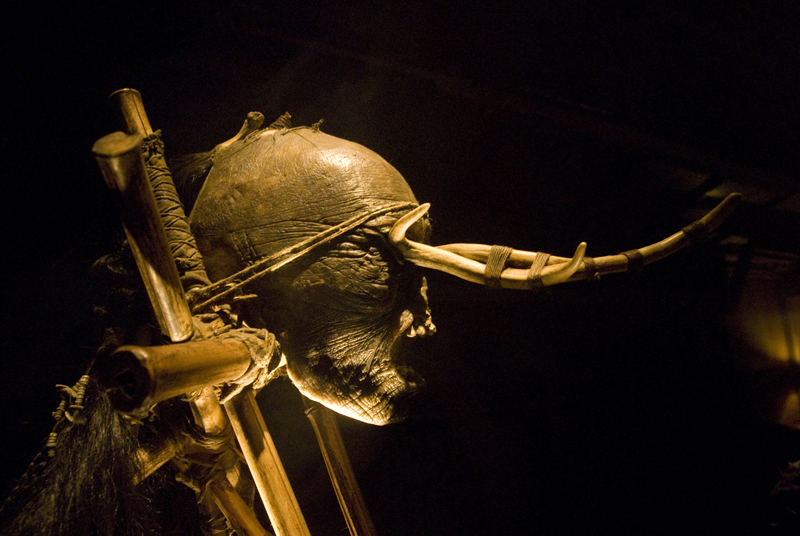Prophecies suck in RPGs because of one very simple reason – they predict the future. RPGs should be about the characters creating their own future but with prophecies the GM must force the players down a particular path. Prophecies are railroading.
There are lots of if-and-buts about this. Some prophecies can be avoid if the players do X,Y and Z but they are not really prophesies any more that saying the world will be fucked if World War 3 breaks out. These are really just predictions extrapolated from knowledge. Adventures around this type of prophecies often involve the party trying to stop an evil monster who is set on resurrecting a dead god or some such thing.
January 2017 RPG Bloggers Carnival
This month’s topic is Prophecies & Omens and hosted by Tales of a GM. Find out more about the RPG Bloggers Carnival.
Photo by thierry ehrmann CC-BY
Fate
True prophecies involve predetermination, a fixed time-line or gods of fate ensuring things happen. Which means the prophecy will be fulfilled regardless of what the characters do. As railroading the players this much is something most GMs avoid, adventures focus not on stopping the prophecy but on making sure the characters control the vital location, magic object or a person at the right time. Generally there will be an evil monster who also wants to poses the MacGuffin and acts as the parties antagonist.
A more imaginative way to use true prophecies in a game is to have them be fulfilled early on in the adventure and have the players face the consequences. Presenting the characters with the question of what to do when the Dark Lord has taken control gives a lot more scope to GMs and players. There may also be consequences to explore if the forces of good triumph. The Dark Lord may be dead but his army remains and must be hunted down as its survivors break up in to groups of bandits and warlords.
The One True King
In popular culture a prophecy is often based on a single person who is destined to fulfil a particular role in fate. Often this takes the trope of a birth mark in a certain shape or a particularly unlikely ancestry which identifies that person to be the King or true wielder of an ancient sword. This approach to prophecy is particularity bad for tabletop RPGs.
There are three reasons why this is a bad idea:
- It singles out one player to be the centre of the game which make make other players feel left out or unimportant.
- The adventure depends on one player and the game sabotaged is a particular player cannot make it for a critical session.
- If the destined character dies, the game comes to a grinding halt which ties the GMs hands.
Using Prophecies in RPGs
Prophecies, omens and portents are great ways of adding flavour to a world. It gives the players the sense of great powers at work and a world which exists beyond their character’s immediate vicinity. There should be a rich tapestry of gifted oracles, charlatans and raving lunatics to make fate and omens a major aspect of the game not just some afterthought as a way for the GM to railroad the players.
When writing adventures shaped around a prophecy the writer must as a simple question: Does this prophecy give the players freedom to create stories or is it just a way for the GM to dictate the a story to the players?

